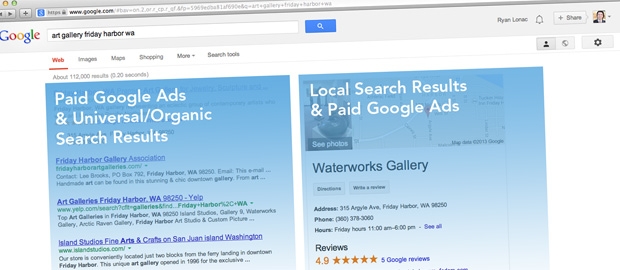
Value. We can't stress it enough. Your content needs to give something valuable to your readers.
While value isn’t a new concept, it wasn't all that long ago SEO (search engine optimization) made writers disregard the act of actually saying something. Keyword stuffing - that nasty habit we mentioned in the last journal entry - ruled search results. Even the best internet writers were faced with a dilemma: stuff and get found or write valuable content and risk never having it read.
Thank goodness these are no longer the choices. Yes, SEO optimization is still a huge key. But now search engines no longer look at term-packed copy and automatically give it a thumbs up for relevancy.
So, how do you walk the fine line between valuable content readers want to read and SEO rich text? These are a few tips we find helpful:
Edit
Rules were meant to be broken. We know that. But, we also know breaking them only works when you did so intentionally. Edit your writing. Use proper grammar. Spell words correctly. Avoid run on sentences. Break thoughts up into bite size bits. Follow the rules. If you’re going to break them, know you’re doing it.
Say Something
We’re back to value again. We just can’t get away from it and neither can you. Whether you are writing a blog post, web copy or Facebook status, say something your audience will find relevant.
Be a Good Writer (or hire one)
Write concisely. Avoid big words. Keep things in laymen’s terms. While you understand your industry speak that doesn’t mean your clients do. Most likely, they don’t. They’re experts in a different field.
If trying to write well is making you pull out your hair, hire a professional. Lets face it, writing’s not everyone’s cup of tea. Find someone who can harness your brand’s voice. Look for a writer who asks questions and is open to feedback. Outsourcing content doesn’t have to mean giving up ownership. It just takes a little something off your plate.
Think of Keywords Like Salt
Use Your Keywords as the theme for your content and let them help you plan the message. Then, after you write your copy, sprinkle them sparingly across the piece. A little bit goes a long way.
Write First. Optimize Later.
Get your thoughts on paper. Say what you want to say. Make sure your message is valuable. Then – and only then – optimize your text. Once you have your text formulated, insert your keywords and keyword phrases.
You might need to tweak sentences and paragraphs to make the keywords and phrases work. That’s okay. Just don’t stick them in for the sake of sticking them in. Think of the reader first. Does the text make sense, or will the reader see it and think, huh?
Do you have any tips or tricks you find helpful? Let us know on Twitter.




